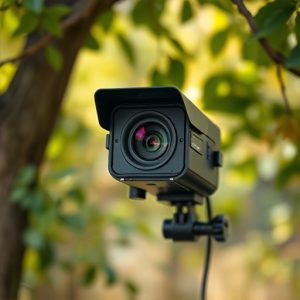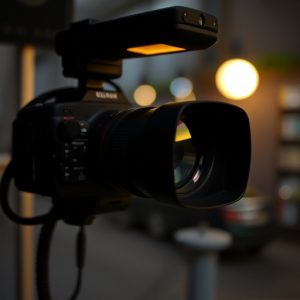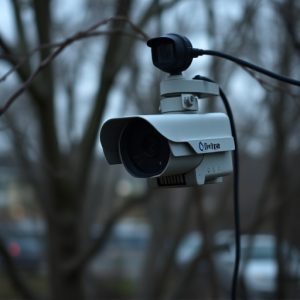Hidden Cameras in Everyday Objects: Benefits, Risks, and Legalities
Hidden camera technology has evolved, allowing businesses to discreetly monitor operations through e…….
Hidden camera technology has evolved, allowing businesses to discreetly monitor operations through everyday objects like smart lights and appliances. Strategically placed hidden cameras in offices, warehouses, or retail spaces can enhance security by deterring theft, monitoring activities, and protecting intellectual property. However, deployment in areas like bathrooms or staff accommodations is prohibited without consent due to legal restrictions and potential privacy invasion. When used ethically and legally at suitable locations, these miniature surveillance devices offer significant benefits, from clear footage to promoting security and peace of mind for businesses, employees, and customers.
In the evolving landscape of home security, miniature surveillance devices have emerged as a discreet yet powerful tool. These tiny cameras, capable of fitting into everyday objects, offer unprecedented monitoring capabilities. From smart appliances to seemingly innocuous decor, this article explores how hidden cameras are transforming home protection. We delve into their functionality, the legal framework surrounding their use, and the diverse applications that extend beyond security, including business insights on optimal hidden camera locations. However, we also address ethical concerns and privacy risks associated with these increasingly accessible technologies.
- Understanding Miniature Surveillance Devices
- Common Home Objects as Discreet Cameras
- Legal Considerations for Hidden Camera Use
- Potential Benefits and Applications
- Ethical Concerns and Privacy Risks
Understanding Miniature Surveillance Devices
Miniature surveillance devices, often referred to as hidden cameras, have evolved significantly in recent years. These tiny yet powerful tools can be integrated into everyday objects, providing a discreet way to capture video and audio evidence for various purposes. From home security to business intelligence, their versatility is unparalleled. For businesses, understanding where to strategically place these devices, such as in Hidden Camera Locations for Business like offices, warehouses, or retail spaces, can significantly enhance operations.
These miniature cameras offer high-definition video quality, motion detection, and night vision capabilities, ensuring that every detail is captured. They are designed to blend seamlessly into the environment, often resembling everyday items like smoke detectors, light bulbs, or even pen drives. This innovative technology allows businesses to monitor activities, protect intellectual property, and deter theft, ultimately contributing to a safer and more efficient working space.
Common Home Objects as Discreet Cameras
In today’s digital era, the concept of miniature surveillance devices has evolved far beyond security systems confined to bulky cameras. Common home objects are now seamlessly integrated with hidden camera technology, offering discreet and innovative solutions for monitoring purposes. From smart lights to everyday appliances, these items can double as advanced spying tools without compromising aesthetics or functionality.
For businesses interested in covert observation, exploring Hidden Camera Locations for Business might reveal surprising options within their own properties. By utilizing everyday objects, such as decorative figures, indoor plants, or even kitchen appliances, entrepreneurs can gain valuable insights into operations and security without raising suspicions. This discrete approach allows for comprehensive monitoring while maintaining a subtle presence, ensuring effective surveillance without compromising the ambiance of commercial spaces.
Legal Considerations for Hidden Camera Use
The use of miniature surveillance devices, often referred to as hidden cameras, has become a controversial topic due to legal and ethical considerations. While these tiny cameras can offer valuable insights for businesses, their placement raises privacy concerns. In many jurisdictions, there are strict regulations regarding hidden camera usage, especially in residential areas. The legality of installing such devices depends on factors like consent, the purpose of surveillance, and public versus private spaces.
For businesses exploring Hidden Camera Locations, it’s crucial to understand that certain areas, like bathrooms, changing rooms, or staff accommodation, are typically off-limits for hidden cameras without explicit consent from individuals who may be recorded. Non-compliance can lead to severe legal repercussions, including fines and damage to the business’s reputation. Thus, businesses must prioritize ethical practices and ensure they operate within the confines of the law when considering surveillance technology.
Potential Benefits and Applications
Miniature surveillance devices, often disguised as everyday home objects, offer a range of potential benefits and applications. These hidden cameras can significantly enhance security measures for businesses by providing discreet observation capabilities. For instance, placing such devices in strategic locations within a store or office building can deter theft, monitor employee activities, and safeguard valuable assets. With their compact size and advanced features, these cameras can capture high-quality footage, ensuring clear evidence for any security incidents.
Moreover, the versatility of hidden camera locations for business is immense. They can be integrated into various items like lamps, clocks, or even door knobs, making them nearly invisible to potential intruders. This technology allows businesses to maintain a safe environment while promoting a sense of security among employees and customers alike. The applications are vast, from retail stores to industrial facilities, offering a new level of protection and peace of mind in the digital age.
Ethical Concerns and Privacy Risks
The integration of miniature surveillance devices into everyday home objects raises significant ethical concerns and privacy risks, especially with the potential for hidden camera locations in businesses to be misused. As technology advances, these tiny cameras can go unnoticed, capturing intimate moments and personal information without individuals’ knowledge or consent. This invasion of privacy poses a challenge to civil liberties and raises important questions about data security and ownership.
With their discreet nature, these devices could be exploited for malicious purposes, such as surveillance, harassment, or identity theft. Hidden camera locations in businesses, particularly those targeting employees or customers, can create an atmosphere of distrust and erode the fundamental right to privacy. It is crucial to establish clear regulations and guidelines to govern the use of such technology, ensuring that individuals are aware of their rights and that personal information remains protected.
Miniature surveillance devices, or hidden cameras, have evolved from mere tools for law enforcement to versatile applications in various sectors. Integrating these tiny yet powerful technologies into everyday home objects offers both benefits and challenges. While they can enhance security and provide valuable insights, the ethical concerns surrounding privacy cannot be overlooked. As we navigate this technology’s growing presence, especially in business settings with hidden camera locations strategically placed, it’s crucial to maintain a delicate balance between innovation and individual rights, ensuring responsible use for a safer yet more transparent future.


